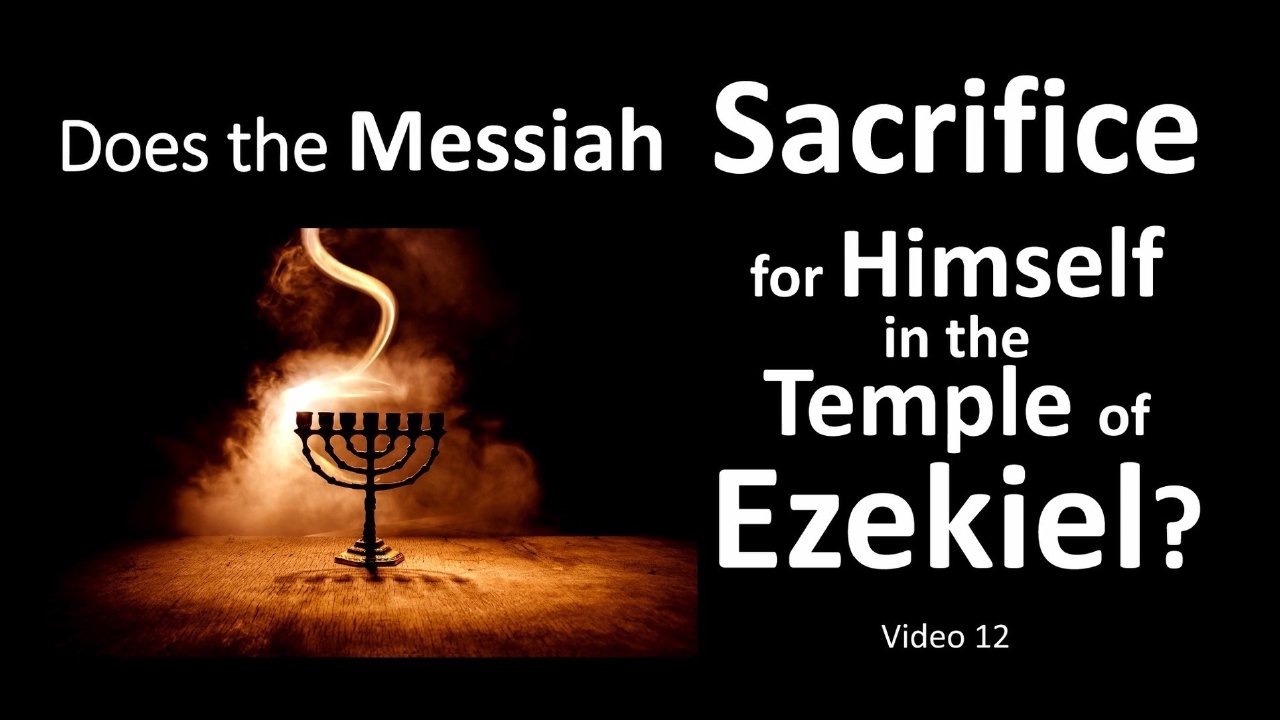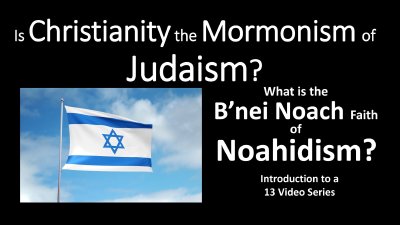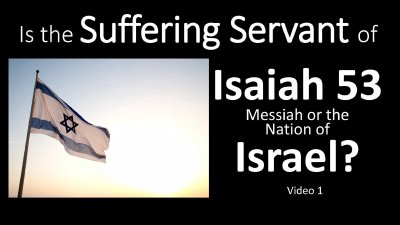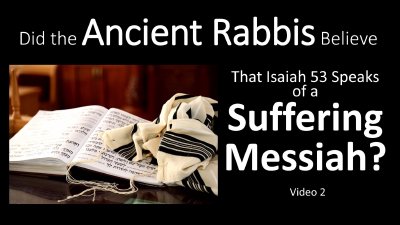Ezekiel 45:22 describes a Prince who would offer a bull as a sacrifice “for Himself and for all the people,” in Ezekiel’s perfect temple. Christian believe this passage was fulfilled when Jesus sacrificed Himself for our sins, but Jewish rabbis disagree pointing to the fact that this passage specifically states that the Messiah’s sacrifice would be “for himself.”
Claiming that this reference is referring to a third temple to be built when the Messiah returns to Jerusalem, Jewish rabbis use this passage to try to prove Jesus could not be the Messiah because the New Testament claims Jesus is sinless, so He would not need to sacrifice “for Himself.” In this video, we examine the Hebrew text of this passage to demonstrate how this passage is actually teaching that the Messiah sacrificed “by” or “on account of” Himself for our sins, not that He needed the sacrifice, but that he was offering Himself as a sacrifice for all of the people who would be saved by putting their trust in Him.

12 Does the Messiah Sacrifice for Himself in Ezekiel's Temple?
Examining Ezekiel 45:22
Christina R Darlington






